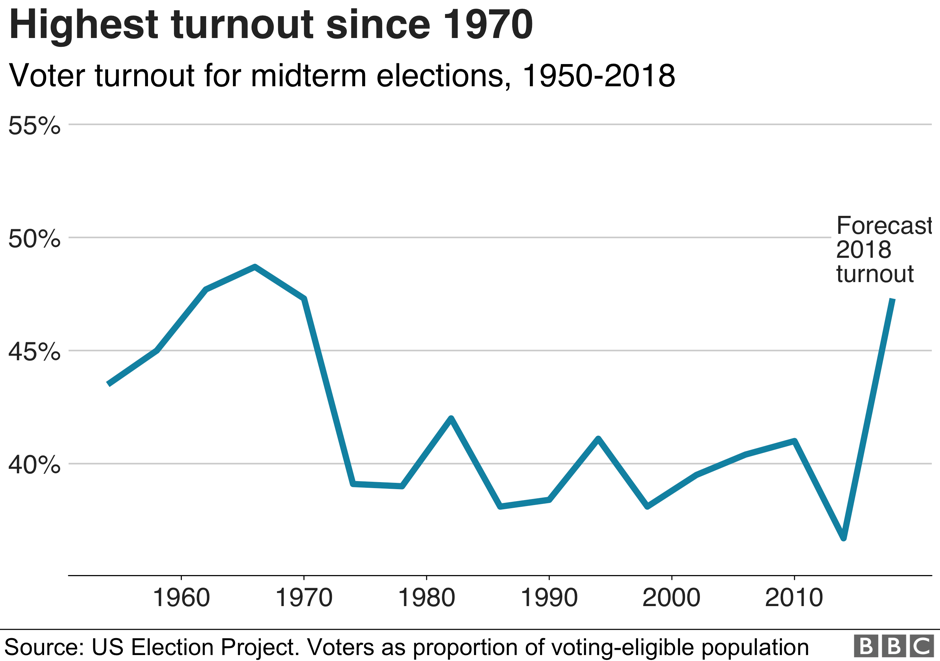Eric Berfela looks at how the American public awoke from their apathy-infused slumber during the US midterm elections.
President Donald Trump has had arguably a smooth sailing for the first two years of his presidency due to Republicans controlling both the House of Representatives and the United States Senate. He has been generally well shielded and protected from investigations and has implemented several dubious policies.
However, there is currently a Special Counsel Investigation looking into possible Russian interference in the 2016 Presidential Election, obstruction of justice and other possible accusations relating to Donald Trump and his aides– spearheaded by Robert Mueller, a titanic and a capable prosecutor.
“This election has also seen a few historical firsts for women and minorities…These are fantastic results, that showcase how women and minorities have been outraged by Republican voting record and behaviour.”
But that has been merely a bump in the road from Trump so far. The checks and balances originally devised by the US Constitution in order to hold an incumbent accountable were controlled by Republicans with vested interests in protecting their Commander in Chief.
Under normal circumstances, they would use these checks and balances to keep the legislative, executive and judicial branches separate and balanced. That hasn’t happened. The style of leadership preferred by Republicans is more like a free for all. Or, if you are on the speculative side, something was taken out of Sun Tzu’s Art of War: classic divide and conquer. Both in the branches of government as well as in public rhetoric. Divisiveness has been the bread and butter of the first two years of Donald Trump’s presidency.

For those who do not follow politics closely, the US midterm elections are a periodical cycle of elections that happen every four years, usually around an incumbent’s halfway mark through the presidency. They are usually seen as indicative of a Presidents performance so far. All 435 seats in the House of Representatives are up for grabs, as well as a third of the seats in the United States Senate. In addition, 34 of the 50 States elect their governors as well during this election. Think of it as hitting the refresh button on the US government, except the seats that are refreshed are kind of random.
Usually midterm elections are a run of the mill affair, something people expect to happen but might not pay too much attention to. Voter turnout is standard, and people generally can’t be fussed.
Not in 2018 though.
This election has seen the highest voter turnout since 1970. It is estimated 114 million votes were cast, compared to 83 million in 2014. People were stimulated by Trump’s divisive rhetoric, and racist-sprinkled accusations and projections. On one hand, Democrats were outraged by his questionable policies and behaviour, seeking to translate this outrage into political momentum. On the other hand, witnessing the same actions, Republicans doubled down on fear and delusions that the US will be turned into a terrorist and unchecked migration haven.

As the government reflects its people, so are the results of this election representing the division and seemingly parallel societies living in the US right now. Democrats campaign efforts focused mainly on health-care, and to some extent gun control. Republicans,

Soource : BBC
This election has also seen a few historical firsts for women and minorities:
What this means for the US is that now Democrats can finally stand up against Trump. The House of Representatives, now controlled by the democrats can now use its powers to launch new subpoena powered investigations intro Trump and his inner circle, his finances, Russian interference, ethics scandals and more. They can challenge the conservative legislative agenda, even put a full-stop to it and even demand Trump’s long-awaited tax-returns. Democrats finally have a bite in this presidency, and will no doubt use all its power to make Trump’s life a living hell.

What this means for the rest of the world, is quite a different thing. The US nowadays is a social experiment unfolding in real-time. It is unprecedented in its methodology, division and accusations of ‘fake news’.
At first, America showed us what can happen when people are misinformed, lied to and put in fear of their neighbour: they end up putting in power a man and a group of people they do not quite fully understand. But now they’ve shown us a flipside of that coin: what can happen when you defeat political apathy. Those people can and should stand up for values such as decency and respect.
What we should learn from this election as students and people living in a different country altogether? Vote. Go out and vote. Evil relies on the apathy of good people to thrive. The United States is finally taking a stand against its indiference. We can do the same.